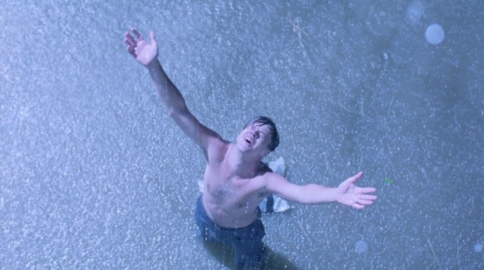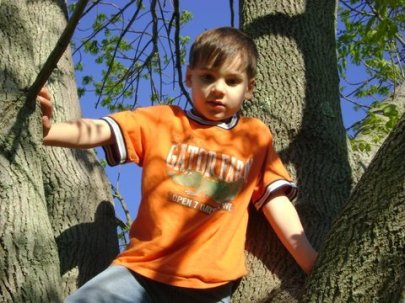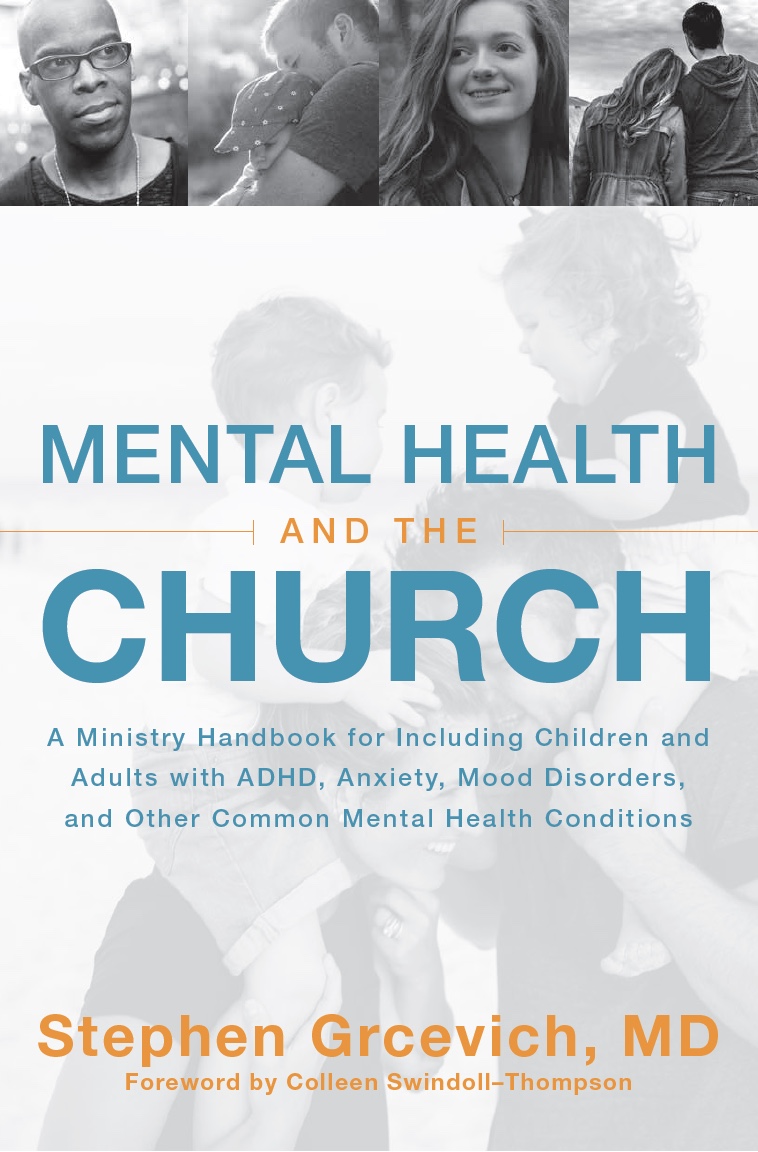 In today’s seventh and final installment of David Lynden’s blog series on Spiritual Autism he examines how God reaches out to us and breaks through our static routines to reveal Himself to us.
In today’s seventh and final installment of David Lynden’s blog series on Spiritual Autism he examines how God reaches out to us and breaks through our static routines to reveal Himself to us.
Being the parent of a special needs child is often a journey of constant despair. You ache for the many things your child will probably never enjoy or experience. With autism, you pine for some kind of deeper connection that you know will always be impaired. Sometimes, it can feel like a kind of prison. But, in this small moment, I suddenly realized that God was taking my routines and trying to break through to connect with me. With this little crack in the wall, I could feel God burrowing through the walls of hopelessness with a small glimmer of a promised world renewed; of a deep blue Pacific Ocean, of a place where the bars and cement block walls that kept me away from my son and kept me away from my God would one day crumble to dust.
Some more puzzle pieces were snapped into place. Yes- I had simply watched a movie. But, what I had really watched was the story of the Bible, particularly the Book of Exodus. I don’t know how I had missed it all those other times, but when Andy had escapes and Warden Norton goes to the wall safe to make sure the financial books Andy kept were still there, he found that Andy had replaced the books with his prison-issued Bible. Norton opened the cover where Andy left him a little note- “You were right, Warden. Salvation lies within.” And then, Warden Norton flipped open the Bible to where Andy had been hiding his rock hammer. It was in The Book of Exodus!
 But unlike the Book of Exodus, there is more completeness to this story. Our hero stories all stir a desire for hope, for redemption, but they leave us looking for the bigger story. This movie, however, took this desire a step further. It was the story of the Exodus- a people under bondage and a heroic figure who leads others to freedom and an encounter with the presence of God. But, Andy was not a Moses-figure in the story. He was a Christ-figure in the story. He was an innocent man thrust into a horrible world filled with guilty men; men who could not even admit their guilt- that is, all but Red who jokingly called himself, “the only guilty man in Shawshank.” And wherever Andy- this one truly innocent man- went, he brought renewal and restoration and hope. His escape from Shawshank Prison was a virtual death and resurrection as he crawled through the sewer pipes under the earth for 500 yards before emerging alive, reaching towards the heavens after shedding his prison uniform and feeling the rain on his face. And then he drew his friend Red out of despair and into a new land; a friend who was imprisoned not just by iron bars and cement block walls, but also by fear and guilt and hopelessness. He instilled the promise of hope in Red and then gave him the means to leave this hellish world behind and join him in a completely new and beautiful place that had been all but forgotten. And there, on a heaven-like seashore, Andy embraced his redeemed friend.
But unlike the Book of Exodus, there is more completeness to this story. Our hero stories all stir a desire for hope, for redemption, but they leave us looking for the bigger story. This movie, however, took this desire a step further. It was the story of the Exodus- a people under bondage and a heroic figure who leads others to freedom and an encounter with the presence of God. But, Andy was not a Moses-figure in the story. He was a Christ-figure in the story. He was an innocent man thrust into a horrible world filled with guilty men; men who could not even admit their guilt- that is, all but Red who jokingly called himself, “the only guilty man in Shawshank.” And wherever Andy- this one truly innocent man- went, he brought renewal and restoration and hope. His escape from Shawshank Prison was a virtual death and resurrection as he crawled through the sewer pipes under the earth for 500 yards before emerging alive, reaching towards the heavens after shedding his prison uniform and feeling the rain on his face. And then he drew his friend Red out of despair and into a new land; a friend who was imprisoned not just by iron bars and cement block walls, but also by fear and guilt and hopelessness. He instilled the promise of hope in Red and then gave him the means to leave this hellish world behind and join him in a completely new and beautiful place that had been all but forgotten. And there, on a heaven-like seashore, Andy embraced his redeemed friend.
When these puzzle pieces fall into place, I sometimes “feel” God with something other than a sense of vision or hearing or smell or touch. I feel God as I see myself as part of a larger story with little moments of hope.
- A moment of hope with my little boy, who broke from his routine to whisper to me that he loved me.
- A movie I have watched so routinely that I had missed how it suddenly became part of a bigger story of redemption crying out about the power of hope.
- Another reading of The Book of Exodus where God redeems His enslaved people, brings them out of oppression and establishes a reunion where His presence would reside in the midst of them. God brings His people not simply out from slavery, but into this elusive “relationship” with Him; into a new land, a new world.
Routines that had lulled me to sleep had suddenly begun to burst with a sense of hope. And this prompts a question in my mind. From where does hope come? False hope certainly could come from our own attempts to make an unlivable situation livable. Perhaps some people can conjure up this false hope better than others. Or maybe the people who refuse to hold onto something false and live in despair are the only ones living in truth. But, I have a hard time believing that. There is something to these stories that reflect something from this bigger story that just does not seem like a coincidence to me. Why do they keep telling the same story over and over again? And why do these stories finally point us to hope? Why do stories of hope live on in our memories, while stories of despair tend to die? Is it simply because we prefer being sedated by an unrealistic hope or because we instinctively know these stories are true in some sense?
 The story of redemption had suddenly bounded over this barrier in my head that said, “A relationship with God must be attained through the same sensory system that interprets the rest of this world I live in.” This was a difficult barrier to get past. Since I could not see, smell, taste, touch or hear God, I guessed that I could not actually have a relationship with Him. And yet, maybe He meets us in our world of sensory input and basic needs and familiar routines to awaken the mind. We see little moments of redemption- the beauty of music or the truth in a piece of art or a small display of kindness in a world that sometimes scoffs at such sentimentality…or a rare moment when a little boy whose mind seems imprisoned in routines and repetitions breaks free and whispers a sincere, “I love you” to a father who wonders if he truly understands how much he means to the father. And in these small hours, these little wonder, we see hope within reach. Maybe God is whispering to us through the little moments of hope amidst the routines of life. Maybe God is breaking through our static system with a narrative that woos us to a more fluid place of hope, whispering to us, “I love you.” Maybe those flickers of hope are actually little signals to us. Maybe those glimpses of our deepest heart’s desire resonate in our stories that are burned onto the hard drive of our minds. Maybe God is helping us out of our spiritual autism with something right before our eyes. These are among my hopes and I do not believe that they are hopes that are merely sentimental, but rooted in something real and rich. And so I hope.
The story of redemption had suddenly bounded over this barrier in my head that said, “A relationship with God must be attained through the same sensory system that interprets the rest of this world I live in.” This was a difficult barrier to get past. Since I could not see, smell, taste, touch or hear God, I guessed that I could not actually have a relationship with Him. And yet, maybe He meets us in our world of sensory input and basic needs and familiar routines to awaken the mind. We see little moments of redemption- the beauty of music or the truth in a piece of art or a small display of kindness in a world that sometimes scoffs at such sentimentality…or a rare moment when a little boy whose mind seems imprisoned in routines and repetitions breaks free and whispers a sincere, “I love you” to a father who wonders if he truly understands how much he means to the father. And in these small hours, these little wonder, we see hope within reach. Maybe God is whispering to us through the little moments of hope amidst the routines of life. Maybe God is breaking through our static system with a narrative that woos us to a more fluid place of hope, whispering to us, “I love you.” Maybe those flickers of hope are actually little signals to us. Maybe those glimpses of our deepest heart’s desire resonate in our stories that are burned onto the hard drive of our minds. Maybe God is helping us out of our spiritual autism with something right before our eyes. These are among my hopes and I do not believe that they are hopes that are merely sentimental, but rooted in something real and rich. And so I hope.
- I hope that my connection with Micah continues to be less and less impeded.
- I hope that my connection with God continues to be less and less impeded.
- I hope that this world to come is as green and lush as it is in my dreams.
- I hope.
***********************************************************************************************************
 Key Ministry has assembled a helpful resource on the topic of Asperger’s Disorder and Spiritual Development. This page includes the blog series Dr. Grcevich and Mike Woods developed for Key Ministry, links to lots of helpful resources from other like-minded organizations, and Dr. Grcevich’s presentation on the topic from the 2012 Children’s Ministry Web Summit. Click here to access the page!
Key Ministry has assembled a helpful resource on the topic of Asperger’s Disorder and Spiritual Development. This page includes the blog series Dr. Grcevich and Mike Woods developed for Key Ministry, links to lots of helpful resources from other like-minded organizations, and Dr. Grcevich’s presentation on the topic from the 2012 Children’s Ministry Web Summit. Click here to access the page!





I have LOVED Dave Lyden’s series as he wove in and out of his family, his favorite movie, and Scripture. Powerful! I am blessed! Thanks, Dave!
LikeLike
Beautiful!
Sent from my iPhone
>
LikeLike